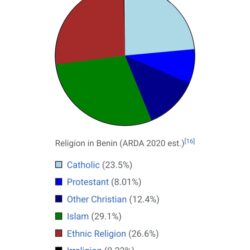🌍 China’s Investment in Africa: Sustainable Growth in Ethiopia’s Agroprocessing & Manufacturing
China is Africa’s largest economic partner, with 10,000+ Chinese firms operating across the continent. Learn about sustainable investment in Ethiopia’s agroprocessing & manufacturing sectors under the PIGA framework.
1. China: Africa’s largest economic partner
Over the past two decades, China has become Africa’s largest economic partner, surpassing Western nations in trade, investment, and infrastructure development. Today, more than 10,000 Chinese-owned firms operate in Africa, with 90% being privately owned.
Chinese companies play a major role in Africa’s industrial sector, contributing 12% of the continent’s manufacturing output, valued at approximately $500 billion per year. In Ethiopia, Kenya, Mozambique, and Zambia, Chinese investments have transformed key industries, especially agroprocessing and light manufacturing.
While China’s economic engagement offers opportunities for growth and job creation, sustainable business practices remain a key area for improvement. The Partnership for Investment and Growth in Africa (PIGA) framework promotes investment-led exports and supports businesses in meeting environmental and social sustainability requirements.
2. The Scale of Chinese Investment in Africa
Key Facts:
✔ China-Africa Trade Value (2023): Over $282 billion
✔ Chinese FDI in Africa: $49 billion+ in total investments
✔ Number of Chinese Enterprises in Africa: 10,000+ (90% privately owned)
✔ Major Sectors: Manufacturing, agriculture, infrastructure, energy
Chinese investments continue to accelerate industrialization and modernize African economies.
3. China’s Role in Africa’s Industrial Production
China’s Impact on Africa’s Manufacturing Sector:
- Contributes 12% of Africa’s total industrial output
- Handles $500 billion worth of annual production
- Specializes in textiles, food processing, electronics, and automotive sectors
Chinese firms are helping diversify Africa’s economies, reducing dependency on raw material exports.
4. Chinese-Owned Firms in Africa
Chinese enterprises in Africa fall into two main categories:
🔹 Private Companies (90%) – Entrepreneurs investing in agriculture, manufacturing, and retail.
🔹 State-Owned Enterprises (10%) – Large infrastructure projects in railways, roads, energy, and telecommunications.
These businesses create millions of jobs while transferring technology and skills to local economies.
5. Long-Term Chinese Commitment in Ethiopia
Key Investment Sectors:
📌 Agroprocessing: Food processing, packaging, and agricultural exports.
📌 Light Manufacturing: Textile production, footwear, and machinery assembly.
📌 Infrastructure: Industrial parks, highways, energy projects.
China’s long-term presence in Ethiopia ensures sustainable economic collaboration.
6. The Importance of Sustainable Investment
✔ Job Creation: Over 1 million direct and indirect jobs in Ethiopia.
✔ Local Supply Chains: Strengthens domestic industries.
✔ Skills Development: Training programs for local employees.
✔ Green Energy Initiatives: Investments in solar and wind power projects.
Sustainable investment fosters inclusive economic growth and long-term stability.
7. Challenges in Responsible Business Conduct
Despite efforts, challenges remain in corporate responsibility:
⚠ Environmental Impact: Industrial pollution concerns.
⚠ Labor Rights: Working conditions and fair wages.
⚠ Regulatory Gaps: Inconsistent enforcement of local laws.
Addressing these issues is crucial for sustainable economic partnerships.
8. China’s Push for Ethical Business Practices
The Chinese government has introduced policies encouraging responsible investment, including:
✔ Guidelines for Sustainable Development of Foreign Enterprises
✔ Belt and Road Green Development Strategy
✔ Mandatory Social and Environmental Assessments
Stronger compliance measures are needed to ensure widespread adoption.
9. Ethiopia’s Environmental and Social Standards
Foreign investors must comply with Ethiopia’s mandatory sustainability requirements:
✅ Environmental Protection Policies
✅ Fair Labor Laws and Minimum Wages
✅ Corporate Social Responsibility (CSR) Guidelines
Non-compliance can result in legal penalties or business restrictions.
10. Voluntary Sustainability Frameworks
🌍 UN Sustainable Development Goals (SDGs) – Aligns business practices with global sustainability goals.
🏢 Corporate Social Responsibility (CSR) – Encourages ethical labor policies and community engagement.
🌱 Green Industry Practices – Promotes renewable energy use and waste management.
Companies following these standards gain better reputations and attract global investors.
11. The PIGA Framework: Investment & Growth
The Partnership for Investment and Growth in Africa (PIGA) supports:
✔ Investment-led exports from Africa.
✔ Local job creation through industrialization.
✔ Sustainable manufacturing and agroprocessing practices.
PIGA operates in Ethiopia, Kenya, Mozambique, and Zambia, promoting foreign investment and business partnerships.
12. Impact of PIGA on Local Development
📈 Increased Exports: Higher foreign exchange earnings.
🏭 Infrastructure Development: New industrial zones.
👨🏭 Employment Growth: More skilled jobs in manufacturing and agriculture.
PIGA aligns Chinese investments with Africa’s long-term development goals.
13. Future of China-Africa Business Relations
🔹 Digital Economy Growth – Investments in fintech and e-commerce.
🔹 Infrastructure Expansion – More smart cities and industrial parks.
🔹 Green Energy Collaboration – Wind, solar, and hydroelectric projects.
China’s role in Africa will continue evolving, focusing on high-tech industries and sustainable trade.

1. How many Chinese firms operate in Africa?
🔹 Over 10,000 Chinese-owned firms, 90% privately owned.
2. What sectors do Chinese companies invest in?
🔹 Manufacturing, agroprocessing, infrastructure, energy, and technology.
3. What is PIGA’s role in Ethiopia?
🔹 Promoting sustainable investment in agriculture and manufacturing.
4. How does China support sustainability in Africa?
🔹 Green energy investments, CSR policies, and responsible business frameworks.
China’s investment in Africa—especially in Ethiopia’s agroprocessing and manufacturing sectors—is driving industrial growth, job creation, and infrastructure development.
With frameworks like PIGA and UN SDGs, Chinese enterprises are encouraged to adopt sustainable business practices, ensuring long-term economic benefits for Africa.

















